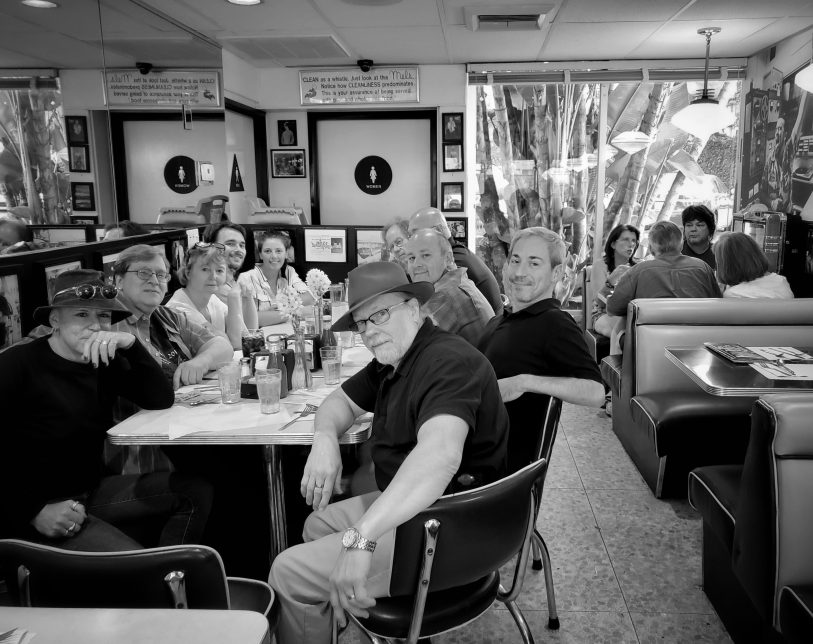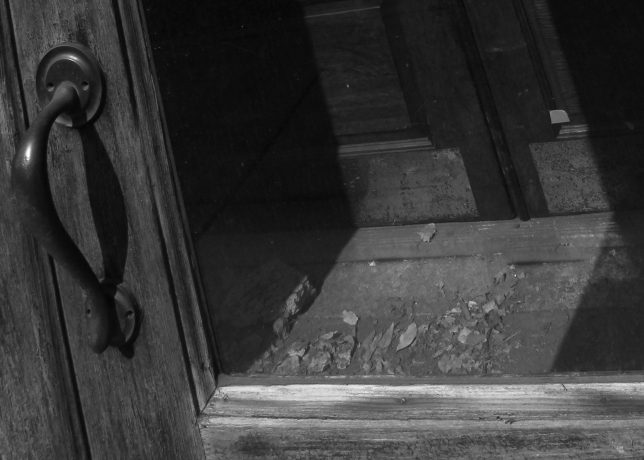For several years, we have seen shots across the bow from advocates of either pure capitalism or some form of socialism, and except for a few instances of informed theoretical discussions based on a thoroughly de-romanticized view of history, we are treated to schoolyard fights between factions that never seem to care for reasoned discourse, only for planting flags and claiming loyalty.
This is not religion, but for so many people it gets taken as such, and the results are rarely edifying. What is amusing (in a tortured way) is the assumption by such advocates that any move toward the reviled system will somehow strip us of our intellect and render us stupid, incapable of managing things to our benefit. That, for example, “socialism never works” must be based on the same assumptions made during the Cold War that communism somehow turned its followers into mindless robots. Of course, the inference here is that Capitalism does not.
“Look at Venezuela!”
As if that is the only indictment necessary to discredit what is essentially an economic theory that in no way demands to be taken as an all-or-nothing proposition. Look at Norway. Or Sweden. Or any of the other modern states that have taken socialism and applied it as needed to alter a social contract between the state and its citizens to the benefit of both.
Venezuela is suffering the consequences of decades of corruption and elite pillage, which can happen in any system. The reason we here are not facing a similar meltdown is more a tribute to the sheer size of our economy and the fact that we have adapted certain mechanisms which, depending on the decade, have been decried as “socialist.” But in fact, we are experiencing pillage and have been since we shifted Right in the 1980s. Systematic, legal, well-sold pillage. Every time a tax cut goes to the benefit of the upper 10%, it has to be paid for, either by a commensurate decrease in services we all use, or by borrowing against future securities the cost of which comes out of everyone’s pocket. In time, the effects should be obvious, and they are, but we are still so big and in many parts so comfortable, that we can’t seem to muster sufficient, useful outrage to do anything about.
Right now, because so many of us think the alternative is Socialism, which has been made to appear the end of any kind of civilization we consider good.
This is religion. “You can’t credit Them with a just argument because they are the forces of evil!” Why? “Because they are not like us!”
To which, the question must be asked, “And what are we?”
But to my original point: the assumption seems to be that A System is pernicious, that it has a mind of its own, and once engaged it has certain inevitable consequences that our only defense is to reject it. Utterly.
If true of Socialism, why isn’t it true of Capitalism?
It’s an absurd argument not because it’s so wrong but because it’s so ignorant. I mean “ignorant” in the precise meaning of the word, which is not, in spite of a century of misuse, “stupid.” Ignorance is a condition of lack of knowledge, information. Being ignorant is a curable condition, entirely addressable by becoming informed.
But I do not believe on the level of individual citizens the debate has much of anything to do with the efficacy of systems. In order for that to be the case, a fairly solid grasp of those system would be required, and economics is not amenable to casual understanding, not at this level. Instead, it is entirely personal. it is born out an apprehension of threat and a promise of salvation. Examples are given to bolster shallow arguments, but examples with considerable apparent weight, which would require equal study to see as anything but mythic constructs arrayed in battle for the soul of civilization.
In short, religion.
Now, I use the term Religion in the sense of a system. (Again, systems.) Religion, questions of deities aside, are systems of organization designed to bring people together in an aesthetic cohesion around a statement of rightness. Rituals, arcane texts, sophisticated propaganda feed into a broad community-based set of practices that identify people to each other as sharing beliefs and preferences in behavior. Once you extend past the village level, it becomes a System. People can sign on to participation by agreeing to acknowledge the forms and refrain from questioning the underlying premises. This has benefits to the group primarily, but for the individual as well.
What it does not require to operate is broad understanding of the components, justifications, or origins. It is designed to operate without that. A hierarchy is in charge of the “mysteries” and the actual decisions on how to apply it all, but the populace in general need understand little.
Economic systems are similar.
And the results are very much the same—average people, admittedly or not, treat the system as if it were some kind of natural phenomena, correct and good. Who in their right mind would question it?
The chief beneficiaries of such a system prefer people feel that way.
The question, though, is why such persistent dedication when there is no justification for it? I refer now to people who benefit little from maintaining a system that they understand poorly at best. Not that they couldn’t understand it, but seem unwilling to even crack a book to check whether the barbed euphemisms handed to them by politicians and pundits hold any value.
According to Edward O. Wilson, in his recent book, Genesis: The Deep Origin of Societies, it’s tribal:
For most of history, organized religions have claimed sovereignty over the meaning of human existence. For their founders and leaders the enigma has been relatively easy to solve. The gods put us on Earth, then they told us how to behave. Why should people around the world continue to believe one fantasy over another out of the more than four thousand that exist on Earth? The answer is tribalism…Each of the organized or otherwise public religions as well as scores of religion-like ideologies defines a tribe, a tightly knit group of people joined by a particular story….The members of the tribe are inspired by the special status the story gives them.
A telling phrase in that is “religion-like ideologies.” This would include all nationalistic creeds as well as less politically determined programs that serve to tell us who we should be in order to find conformable situations within a group. Economic systems, for instance, which is relatively new on the scene. Marx arguably set the terms of this new ideological initiation by making everyone aware that such systems not only serve to enable trade along rational lines and distribute goods and services in more or less efficient ways, but come to define us in terms of class and status and, eventually, popular philosophical disposition.
Whether or not a given system “works” better than others has become less important currently than our allegiance to it, which serves to separate us into easily-identifiable subgroups. The battle is not now over what might work “better” but over identity. We here saw this as a flaw in the soviet system, because so much of it failed to work to the benefit of the people, but recognizing the apparent blindness in others has not allowed us to see it in ourselves.
Because it aligns with another oft-unacknowledged blindness, which is the need to feel superior. Or, at least, not feel inferior.
We could certainly adapt aspects of Socialism to our system and make it work for us. We already have. It was called the New Deal. It worked well enough and the only reason to tear it down was that it threatened someone’s sense of importance and security of power. So we already have evidence that it will not eat us alive like some cancer and there is evidence available from all around the world. What we see when we look at it is a mixed bag, ranging from very workable to a shambles. But usually the broken examples are broken from a multiplicity of problems not necessarily inherent in Socialism. Any such system can be made to work badly.
But then we have to ask what we mean by that. Work badly for whom? It can be argued that certain groups in such systems may benefit tremendously by the apparent failures to work as advertised. It’s interesting that we assume a system fails when it injures the general population. The application of it certainly fails a large demographic, but I think it is an error to see this as a failure. Someone got just exactly what they wanted and for them it was a raging success. It’s more interesting when we fail to recognize the same kind of “success” going on here.
Every time the argument is made that communism “never” works, it is fair to ask where and when communism has ever been honestly applied. If the state in question ends up with an autocratic governing body or even a dictator, then it is equally fair to say that is not communism. So the “failure” of communism, in my opinion, has yet to be demonstrated because I have yet to see a single example of it at the state level that was little more than a set of promises to allow a new king to take the throne. That’s not communism.
But I’m not here to argue in favor of it. I’m more interested in urging people to stop giving blind allegiance to what amounts to a set of recommendations that require tweaking as circumstance dictates. Adapting an economic system whole (which is another assumption that requires examination, that any country could just adapt a system wholesale and wake up tomorrow with it in place) is not likely to work any better than denying the possible benefits of mixing and matching multiple systems. It depends on what you think you want done.
What we do have, because we operate tribally, is a set of prejudices that predetermine not what system would be best for people, but what kind of people would best suit a system. We aren’t, apparently, interested in economic justice or community care or rational monetary policies—we’re interested in sorting people into groups and shutting out those we feel do not conform to what we believe. Too many people don’t want to hear arguments about universal health because some of them think there are people who shouldn’t be allowed to have it. Same thing with fair housing practices, education, and even universal franchise. Finding the best system which is the most inclusive may be what we claim to want but in practice a lot of people want the opposite.
Since it’s illegal these days to discriminate on traditional bases, we use financial status to do so. Changes in that system which might lead to closer equity and broader civil rights threaten the status of enough of us to trigger irrational arguments over things poorly understood. For the time being, a large segment seems quite content to see the upper 1% get more of the pie as long as it keeps the supposedly less deserving from getting anything at all.
For what it’s worth, in my opinion those folks are going to lose in the long run. But until they do, this is going to be frustrating, bitter fight, one made harder by tribal pride and a kind of sacred ignorance.




